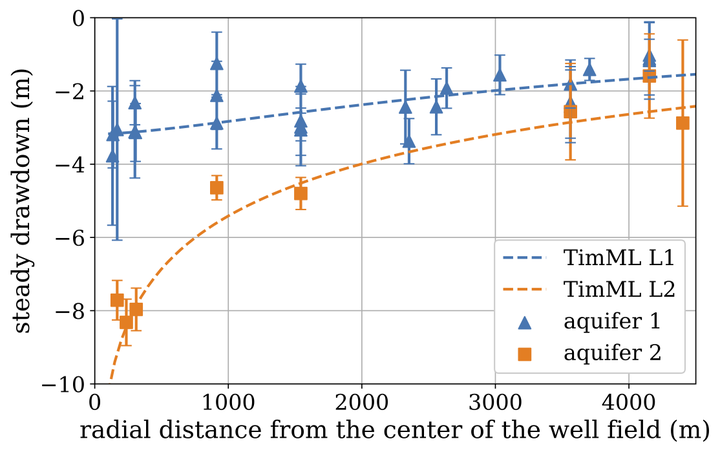
Abstract
Abstract Time series analysis is an increasingly popular method to analyze heads measured in an observation well. Common applications include the quantification of the effect of different stresses (rainfall, pumping, etc.), and the detection of trends and outliers. Pastas is a new and open source Python package for the analysis of hydrogeological time series. The objective of Pastas is twofold: to provide a scientific framework to develop and test new methods, and to provide a reliable ready-to-use software tool for groundwater practitioners. Transfer function noise modeling is applied using predefined response functions. For example, the head response to rainfall is simulated through the convolution of measured rainfall with a Gamma response function. Pastas models are created and analyzed through scripts, ensuring reproducibility and providing a transparent report of the entire modeling process. A Pastas model can be constructed in seven simple steps: import Pastas, read the time series, create a model, specify the stresses and the types of response functions, estimate the model parameters, visualize output, and analyze the results. These seven steps, including the corresponding Python code, are applied to investigate how rainfall and reference evaporation can explain measured heads in an observation well in Kingstown, Rhode Island, USA. The second example demonstrates the use of scripts to analyze a large number of observation wells in batch to estimate the extent of the drawdown caused by a well field in the Netherlands. Pastas is free and open source software available under the MIT-license at http://github.com/pastas/pastas.